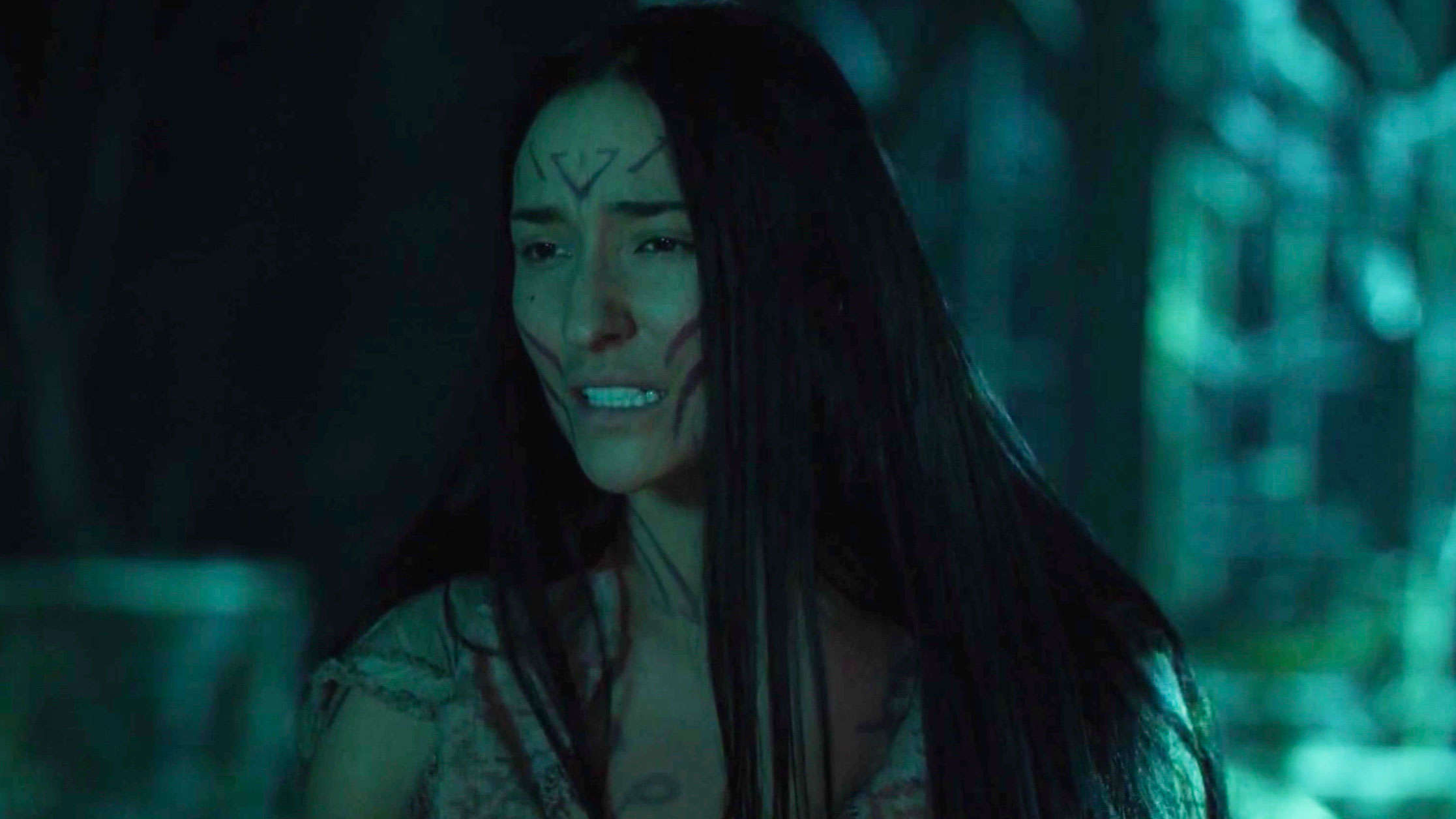Create a free profile to get unlimited access to exclusive videos, sweepstakes, and more!
Lovecraft Country showrunner apologizes for having 'failed' queer indigenous character

Lovecraft Country has taken some bold creative swings since it's premiere on HBO, tackling horror tropes and genre conventions, while also addressing the very real issue of racism and the way it shapes the world of its main heroes: Atticus "Tic" Freeman and Letitia "Leti" Lewis (Jonathan Majors and Jurnee Smollett, respectively). However, it's also stumbled along the way, most notably in its portrayal and treatment of Yahima Maraokoti, an Arawakan Two-Spirit character who is briefly featured in the fourth episode of the series.
Showrunner and creator of the series, Misha Green, addressed this issue in a recent Twitter Q&A after the first season's penultimate episode in which she admitted she'd "failed" the Indigenous character, who is violently killed off shortly after their introduction onscreen.
"I wanted to show the uncomfortable truth that oppressed folks can also be oppressors," said Green in the tweet. "But I didn't examine or unpack the moment/portrayal of Yahima as thoroughly as I should have. It's a story point worth making, but I failed in the way I chose to make it."
The episode, titled "A History of Violence," sees the trio of Tic, Leti and Montrose (Michael K. Williams) explore the tomb of Tic's ancestor — and white supremacist cult leader — Titus Braithwhite in search of pages from the Book of Names, a tome full of magical spells. This is where they encounter Yahima, who has been magically imprisoned here for centuries after Braithwhite murdered their family (whose bodies are also trapped down there with them). The group rescues Yahima and brings them back to Chicago with them, in the hopes that they'll be able to help them translate the Book of Names, seeing as they'd actually helped Braithwhite do so all those years ago. However, Montrose then murders Yahima before they get a chance to help, out of fear that his son Tic will continue to investigate magic.Among the criticisms levelled at the treatment of the character within the episode, was the fact that not only is Indigenous representation in film and TV extremely rare to begin with, but the number of Two-Spirit characters in media is practically nonexistent. (One of the few other examples of Two-Spirit characters comes from Sam Black Crow on American Gods, a character adapted from Neil Gaiman's novel.) This makes Yahima's death even more glaring, especially considering the fact that the character is an original creation just for the series, never having existed in Matt Ruff's novel, from which Lovecraft Country is adapted, and thus could have gone on to play a longer part in the series.
Another issue that fans and critics raised was Yahima's introduction itself, which sees them appear naked at first, their body transforming from a skeletal corpse into a younger version of themselves, in the process revealing that they also possess male and female genitalia, to which Montrose exclaims, "What are you?" Not only does this reduce Yahima to just their body, but it otherizes them to viewers right away, with Montrose reacting to an aspect of their identity rather than the literal fact that they were a decaying skeleton a few minutes ago. It also doesn't help that Yahima isn't able to speak for themselves, relying on Tic to translate for them.
The theme of marginalized people still being able to oppress other marginalized people is an ongoing one within the series, one that's reflected here in how Montrose, a closeted Black man, chooses to kill Yahima. And while Yahima's death didn't have any impact on the series in the longterm, with the characters moving on from it rather quickly, it is notable that Green both heard the criticism and addressed it, something showrunners don't do quite often.
The season finale of Lovecraft Country airs Sunday, Oct. 18 at 9 p.m. ET on HBO.


























